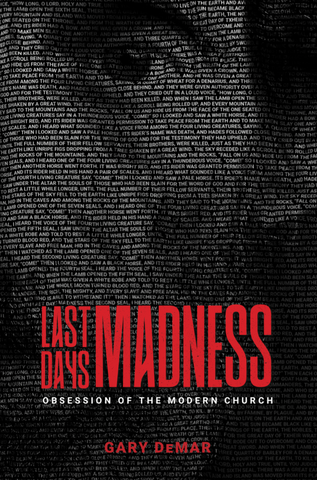Gary continues his discussion with the Resistance Chicks about biblical eschatology and heaven and earth language in the Bible.
The central focus of the Olivet Discourse is the desolation of the “house” (oikos: 23:38) of apostate Israel but would bring salvation to the “world” (oikoumenē: 24:14). The old world of Judaism, represented by the earthly temple, is taken apart stone by stone (24:2). James Jordan writes, “each time God brought judgment on His people during the Old Covenant, there was a sense in which an old heavens and earth was replaced with a new one: New rulers were set up, a new symbolic world model was built (Tabernacle, Temple), and so forth.” The New Covenant replaces the Old Covenant with new leaders, a new priesthood, new sacraments, a new sacrifice, a new tabernacle (John 1:14), and a new temple (John 2:19; 1 Cor. 3:16; Eph. 2:21). In essence, a new heaven and earth.
The darkening of the sun and moon and the falling of the stars, coupled with the shaking of the heavens (Matt. 24:29), are more descriptive ways of saying that “heaven and earth will pass away” (24:35). In other contexts, when stars fall, they fall to the earth, a sure sign of temporal judgment (Isa. 14:12; Dan. 8:10; Rev. 6:13; 9:1; 12:4). So then, the “passing away of heaven and earth” is the passing away of the old covenant world of Judaism led and upheld by those who “crucified the Lord of glory” (1 Cor. 2:8).
John Owen (1616-1683) maintained that the “passing away of heaven and earth” in 2 Peter 3:5-7 had reference “not to the last and final judgment of the world, but to that utter desolation and destruction that was to be made of the Judaical church and state” in A.D. 70. John Brown (1784-1858), commenting on Matthew 5:18, follows the same interpretive methodology.
Heaven and earth passing away,” understood literally, is the dissolution of the present system of the universe; and the period when that is to take place, is called the “end of the world.” But a person at all familiar with the phraseology of the Old Testament Scriptures, knows that the dissolution of the Mosaic economy, and the establishment of the Christian, is often spoken of as the removing of the old earth and heavens, and the creation of a new earth and new heavens.
After surveying how this language is used throughout the Bible and in Jewish literature, John Lightfoot applies the “passing away of heaven and earth” to the “destruction of Jerusalem and the whole Jewish state … as if the whole frame of this world were to be dissolved.” The writer of the letter of Hebrews said as much (12:18-29).

Last Days Madness
In this authoritative book, Gary DeMar clears the haze of "end-times" fever, shedding light on the most difficult and studied prophetic passages in the Bible, including Daniel 7:13-14; 9:24-27; Matt. 16:27-28; 24-25; Thess. 2; 2 Peter 3:3-13, and clearly explaining a host of other controversial topics.
Buy NowGary continues his discussion with the Resistance Chicks about biblical eschatology. Heaven and earth language in the Bible causes many people to think of cosmic bodies out in space, but is this what is really meant?
Click here for today’s episode

